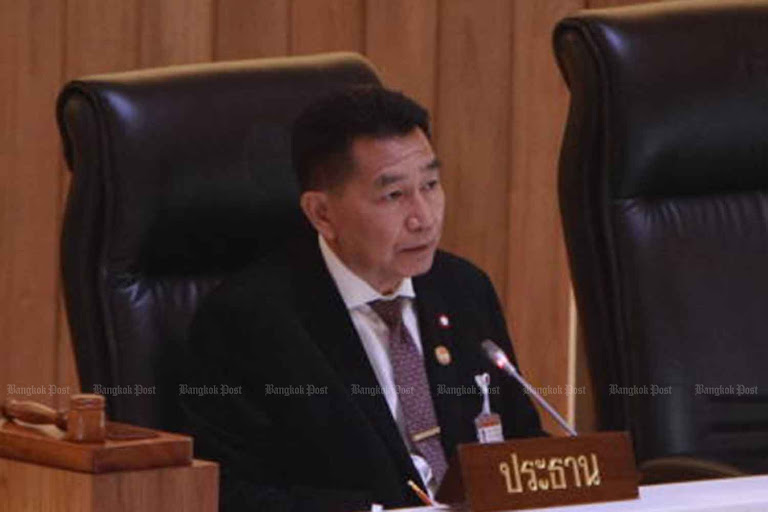Thailand Opposition Says Parliament Renovation Funds Were Misused
Opposition accuses a Deputy House Speaker of misusing funds for parliament renovations and seminars, petitioning the Constitutional Court over alleged charter violations.

The news from Thailand this week highlights a perennial tension in democratic governance: the delicate balance between legislative autonomy in allocating public funds and the potential for abuse and self-dealing. The People’s Party (PP), the opposition, is escalating its challenge to Deputy House Speaker Pichet Chuamuangphan, focusing on alleged violations of constitutional safeguards around budgetary decisions. As reported by the Bangkok Post, the opposition “targets Deputy House Speaker over budgetary instructions.” This case is more than just a political spat; it’s a window into the systemic vulnerabilities inherent in budget processes, even in established democracies.
At the heart of the controversy are two principal allegations: first, that Mr. Pichet directed budgetary instructions to his adviser for parliamentary seminars, with the intent of concentrating activities in his politically connected province, and then reallocating the funds. Second, the PP is questioning the necessity and scale of an 8-billion-baht renovation project for parliament itself, a sum Mr. Pichet has described as “modest.” The opposition intends to petition the Constitutional Court, arguing that these actions constitute a direct or indirect misuse of budgetary funds, violating Section 144 of the Thai charter.
The core issue isn’t necessarily whether the parliamentary seminars are inherently wasteful or the renovation truly unnecessary. Instead, the allegations underscore a more profound systemic question: How do we ensure transparency and accountability when elected officials have wide latitude in allocating taxpayer money? What mechanisms are in place to prevent these funds from being used to benefit the politician’s cronies, district, or personal interests rather than the broader public good?
Consider the following potential avenues of concern that often lead to controversies like this one:
- Lack of Clear Guidelines: The absence of specific, measurable criteria for evaluating project proposals can lead to subjective decision-making, opening the door to accusations of favoritism.
- Weak Oversight Mechanisms: If internal audits and external review processes are inadequate, questionable spending can go unchecked.
- Lobbying and Influence: The involvement of outside lobbyists and special interest groups can unduly influence budgetary decisions, diverting resources to projects that don’t serve the public interest.
- Conflicting Interests: The existence of financial or political ties between lawmakers and contractors involved in government projects can create opportunities for corruption and self-dealing.
Mr. Pichet denies the allegations, asserting that his actions were transparent and verifiable. He even extended an invitation to the accusing MPs to tour the parliament and discuss the renovation budget, an invitation declined, presumably due to the ongoing legal action. This back-and-forth is crucial. It highlights the political theater involved, but also the critical role of public scrutiny and debate in holding those in power accountable. One PP MP even offered the press a tour of the parliament building, questioning the need for various renovation projects.
“What this situation truly reveals is the inherent vulnerability in any system that grants significant power over public resources without robust checks and balances. It’s not just about the individuals involved, but about the structures that enable or constrain their behavior. The question becomes: How can we design budget processes that promote both efficiency and ethical governance?”
This episode in Thailand’s political landscape reflects a broader trend globally: the increasing focus on government transparency and accountability. As citizens demand greater oversight of how their tax dollars are spent, these types of controversies are likely to become more frequent and politically charged. Whether or not Mr. Pichet is ultimately found to have violated the constitution, the very fact that these allegations are being taken seriously, investigated, and debated publicly is a testament to the ongoing evolution of democratic norms and expectations. The real long-term impact may well lie not in any individual verdict, but in the potential reforms to budgetary processes that emerge in its wake.









